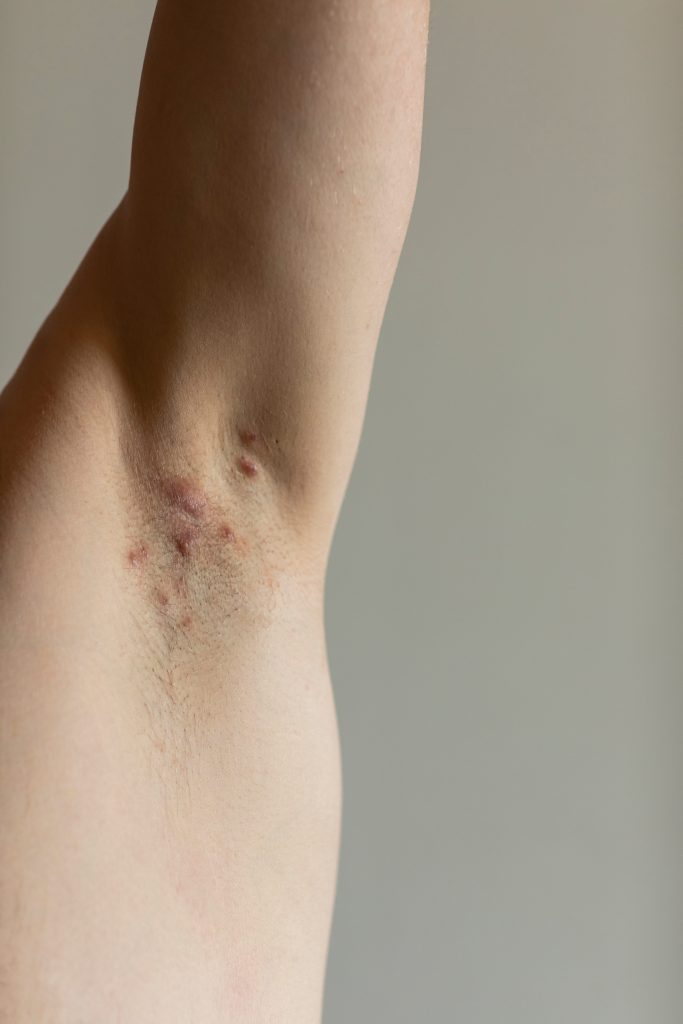Back to General Dermatology

What is Hidradenitis Suppurativa?
Hidradenitis Suppurativa is a chronic inflammatory skin condition that primarily affects areas of the body with apocrine sweat glands, such as the armpits, groin, and buttocks. HS is characterized by recurrent, painful nodules, abscesses, and draining sinuses. It is thought to involve a combination of genetic, hormonal, and immune system factors, although the exact cause is not fully understood.
Symptoms and Stages of Hidradenitis Suppurativa
- Comedones: HS is associated with the presence of comedones, or “blackheads”, in the groin, axilla, or skin folds.
- Painful nodules: HS typically begins with the formation of painful, pea-sized nodules under the skin.
- Abscesses and boils: Over time, these nodules can enlarge and develop into painful abscesses or boils that may rupture and drain.
- Sinus tracts: As HS progresses, interconnected tunnels, called sinus tracts, can form under the skin, leading to the formation of multiple interconnected abscesses.
- Scarring and skin changes: Chronic inflammation and repeated flare-ups can result in scarring, thickened skin, and areas of darkened skin.
Triggers and Risk Factors
- Hormonal factors: HS often worsens during hormonal fluctuations, such as during menstruation or hormonal changes associated with puberty.
- Genetic predisposition: There appears to be a genetic component to HS, with a family history of the condition increasing the risk. It is also associated with acne conglobata, dissecting cellulitis of the scalp and pilonidal cysts.
- Smoking: Smoking is associated with a higher risk and more severe symptoms of HS.
- Obesity: Being overweight can worsen HS symptoms and contribute to disease progression.
- Friction and heat: Excessive friction and heat, such as from tight clothing or excessive sweating, can trigger or exacerbate flare-ups.
Treatment Options for Hidradenitis Suppurativa
- Topical treatments: Depending on the severity and location of HS lesions, topical treatments such as antibacterial washes, topical antibiotics, or anti-inflammatory creams may be prescribed.
- Oral medications: Systemic antibiotics, hormonal therapies, or immunomodulatory medications may be prescribed to help control inflammation and manage symptoms.
- Intralesional injections: In some cases, injections of corticosteroids directly into individual lesions can help reduce inflammation and promote healing.
- Biologic therapies: For moderate to severe cases, biologic medications that target specific components of the immune system may be prescribed.
- Surgical interventions: In advanced cases, or when other treatments have been ineffective, surgical procedures such as drainage of abscesses, removal of affected skin, or laser treatments may be considered.
Hidradenitis Suppurativa is a chronic and often challenging skin condition that requires long-term management. While there is no cure, a variety of treatment options are available to help control symptoms and improve quality of life. If you suspect you have HS or are experiencing persistent symptoms, please call to schedule an appointment with one of our highly skilled board-certified medical providers to determine the most suitable treatment plan for your specific needs.
